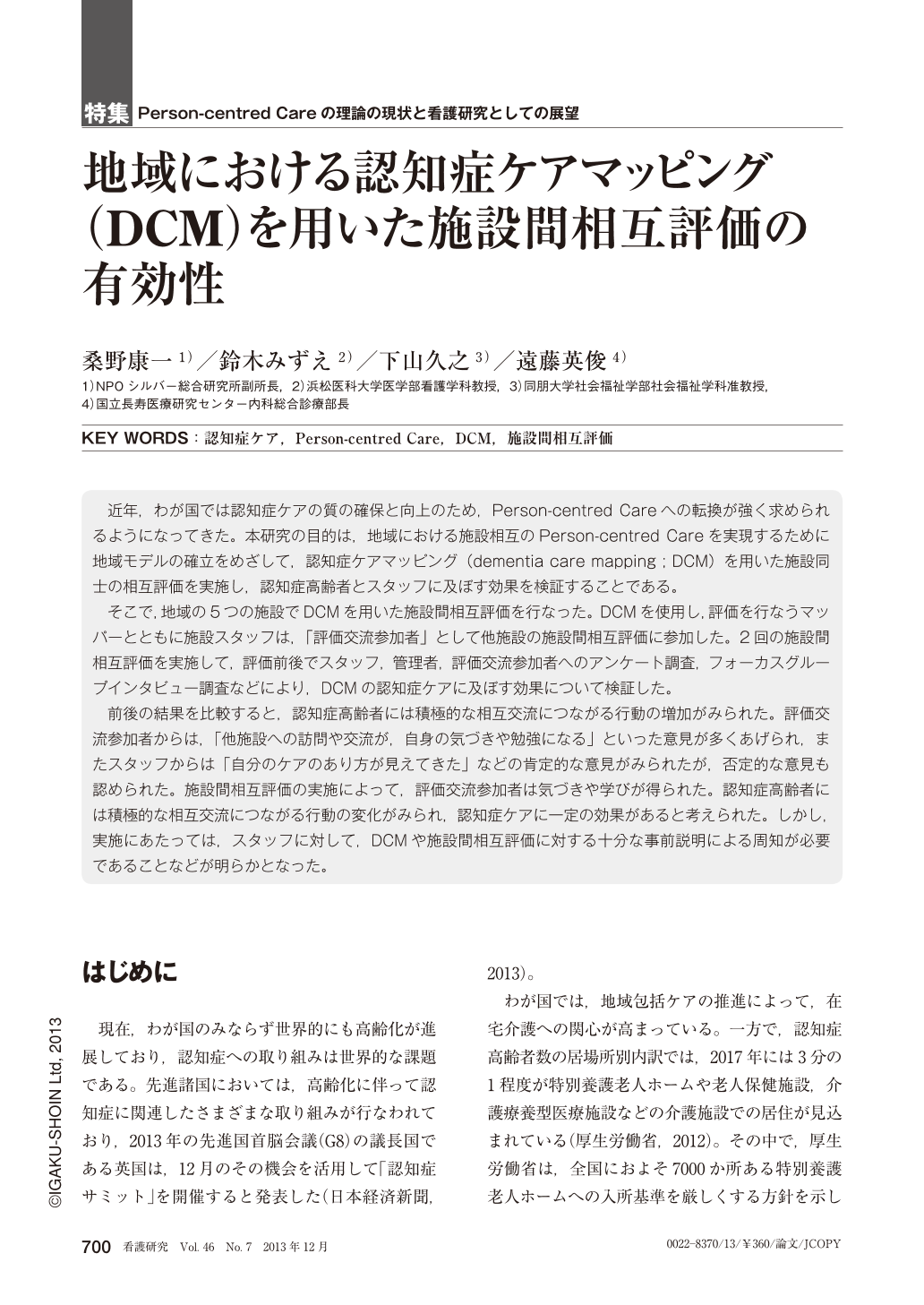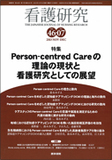Japanese
English
- 有料閲覧
- Abstract 文献概要
- 1ページ目 Look Inside
- 参考文献 Reference
近年,わが国では認知症ケアの質の確保と向上のため,Person-centred Careへの転換が強く求められるようになってきた。本研究の目的は,地域における施設相互のPerson-centred Careを実現するために地域モデルの確立をめざして,認知症ケアマッピング(dementia care mapping ; DCM)を用いた施設同士の相互評価を実施し,認知症高齢者とスタッフに及ぼす効果を検証することである。
そこで,地域の5つの施設でDCMを用いた施設間相互評価を行なった。DCMを使用し,評価を行なうマッパーとともに施設スタッフは,「評価交流参加者」として他施設の施設間相互評価に参加した。2回の施設間相互評価を実施して,評価前後でスタッフ,管理者,評価交流参加者へのアンケート調査,フォーカスグループインタビュー調査などにより,DCMの認知症ケアに及ぼす効果について検証した。
前後の結果を比較すると,認知症高齢者には積極的な相互交流につながる行動の増加がみられた。評価交流参加者からは,「他施設への訪問や交流が,自身の気づきや勉強になる」といった意見が多くあげられ,またスタッフからは「自分のケアのあり方が見えてきた」などの肯定的な意見がみられたが,否定的な意見も認められた。施設間相互評価の実施によって,評価交流参加者は気づきや学びが得られた。認知症高齢者には積極的な相互交流につながる行動の変化がみられ,認知症ケアに一定の効果があると考えられた。しかし,実施にあたっては,スタッフに対して,DCMや施設間相互評価に対する十分な事前説明による周知が必要であることなどが明らかとなった。
It is recently becoming critical to make the shift toward Person Centred Care (PCC) in order to ensure and improve quality care for the elderly with dementia in Japan. The purpose of the study was to clarify the efficacy for the elderly with dementia and care staffs in mutual evaluation and exchange among institutions using Dementia Care Mapping (DCM) in order to establish the community model which can practice PCC.
Mutual evaluation among five institutions using DCM was conducted in a community. As “evaluation and exchange participants” were selected from staff members in order to take part in evaluating other institutions using DCM. Following two mutual evaluation DCM sessions among institutions, the impact on dementia care was studied through questionnaires to staff members and managers, evaluation and exchange participants, as well as through focus group interviews, conducted both before and after the mutual evaluation sessions. Before and after results were compared, the mutual evaluation showed increased actions that link to stronger interaction among the elderly with dementia. Among evaluation and exchange participants, there were many comments that indicate “visits to and exchange with other institutions brings new insights and learning”. While some staff members expressed positive comments such as “it provided an opportunity to find out how I myself have been providing care”, on the other hand some negative comments were shown.
Evaluation and exchange participants can reflect their own care objectively and find the problems to aim the quality care. Behavioral change that led to increased mutual interaction was observed among the elderly service users, indicating that the scheme has certain level of efficacy in dementia care. However it was found that the prior explanation of the staffs was needed to inform and understand the mutual evaluation among institutions using DCM.

Copyright © 2013, Igaku-Shoin Ltd. All rights reserved.


